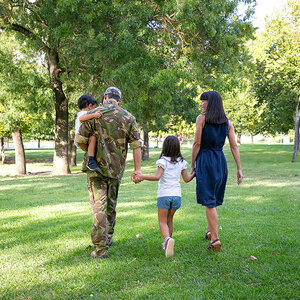How to Help Military & Veteran Families Before, During & After Deployment: For Early Childhood Educators
Early childhood educators play a critical role in helping children build the skills needed to cope with the trauma and stress of having a military parent deployed, an issue brief from the Military Family Research Institute at Purdue University argues. According to How to Help Military & Veteran Families Before, During & After Deployment: For Early Childhood Educators (6 pages, PDF), children age 5 and younger may display behavioral problems such as anger, sadness, feelings of abandonment, anxiety, aggression, withdrawal, and confusion during a parent's deployment. Sadly, as of March 2013 more than 44,700 children in the United States had a parent in the military who had been wounded, fallen ill, or been killed — and of those children, one in four was age 5 or younger. Among other things, the issue brief recommends that educators work to establish a secure and trusting relationship with the children of military parents; that they be proactive in communicating with parents and guardians to anticipate the first signs of stress; that they emphasize the importance of maintaining routine, consistency, and structure; and that they help families include the deployed parent in a child's day through photographs, voice recordings, and other avenues.


